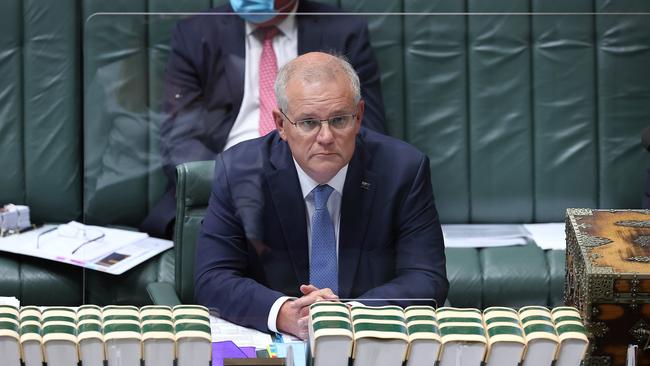
Omicron killed off Scott Morrison’s great hope for a January summer of economic reopening. Indeed, it seemed to call time on his government. But wait – contrary to the wails of anger, Reserve Bank governor Phil Lowe declared Omicron had merely delayed but not derailed the economic recovery.
Even better, Lowe said the economy was outperforming expectations and predictions. Omicron has been highly transmissible but its enduring damage to spending is relatively small. In truth, the economy’s resilience has mocked the bank’s cautious forecasts. Australia, Lowe said, “is within sight of a historic milestone” – unemployment down to 3 plus per cent with the “very real economic and social benefits” for the Australian people.
“As case numbers trend lower, we expect a strong bounce-back over the months ahead,” Lowe said. Households have a savings war-chest of $200bn accumulated during Covid. Business investment, infrastructure spending and consumption will drive the recovery. Lowe’s related message is that rising inflation will be contained. Australia’s inflation problem is only half that of the US.
What are the Prime Minister and Josh Frydenberg doing? They are getting back into the saddle for a second-round campaign on Australia’s economic reopening and recovery, their eyes fixated on the May election.
Morrison and the Treasurer will go for broke on the economic recovery story; witness the decision to terminate Fortress Australia after two years and fully reopen the international border to double vaccinated arrivals from February 21.
There are risks. This is based on the calculation that hospital admissions have peaked and are declining in the big states. Only Western Australia, victim of its own propaganda, is excluded from the reopening to the world.
The polls and the text leaks suggest a government in decay. Yet there is an indicator pointing to the coming three months – an economy ready to break out. Lowe’s big qualification was a further shock from Covid. That aside, he said the worst of Omicron was behind. Australia was heading to the brink of a “significant achievement”; the RBA forecasts unemployment to fall to 3.75 per cent later this year and then edge lower, a result not seen for a half-century.
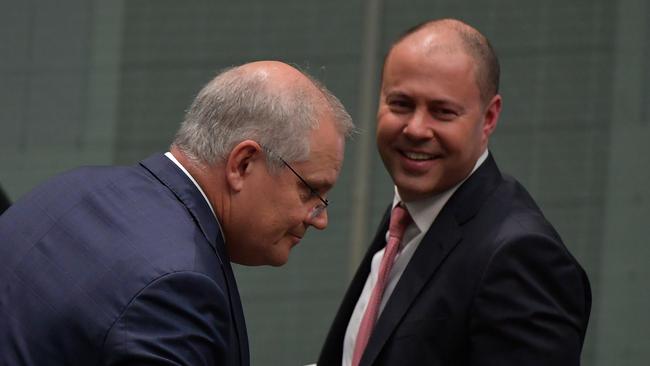
Morrison calls it a “once in a lifetime opportunity”. It may constitute a new era with unemployment remaining below 4 per cent across the forecast period extending to 2024. The economy has conquered Delta; it seems to be conquering Omicron. GDP is expected to grow 5 per cent across 2021 and 4.25 per cent this year. Morrison said it meant a new deal for families struggling through the pandemic.
“Our plan has worked,” Frydenberg said on Tuesday. “The fundamentals are now in place for a strong and sustained economic recovery. The Australian economy has weathered every storm throughout this pandemic. Each time, we have adapted and become more resilient.”
Lowe said the falling unemployment also was linked to rising labour force participation. So the structural gains are genuine. He said “this stands in stark contrast to the United States and the United Kingdom” where labour force participation had declined.
Youth unemployment is below 10 per cent for the first time in a decade. Australia’s Covid recession has smashed the mould from the recessions of the 1980s and ’90s by bequeathing a stronger labour market, not high jobless figures lasting a decade.
Morrison and Frydenberg have their narrative: they champion the pathway to normality. Morrison will cast himself, despite the blunders in fighting Covid, as the more reliable leader to deliver Australians back to the normal life they crave and want restored. He believes if normality becomes the test – and it may – then his chances are still alive. This is what Frydenberg meant when he said it was time to “draw some clear lines in the sand”. The message: no more emergency financing, no more open cheque books, no more Fortress Australia. Witness Frydenberg’s recent rejection of demands from two states, one being NSW, for another round of spending support.
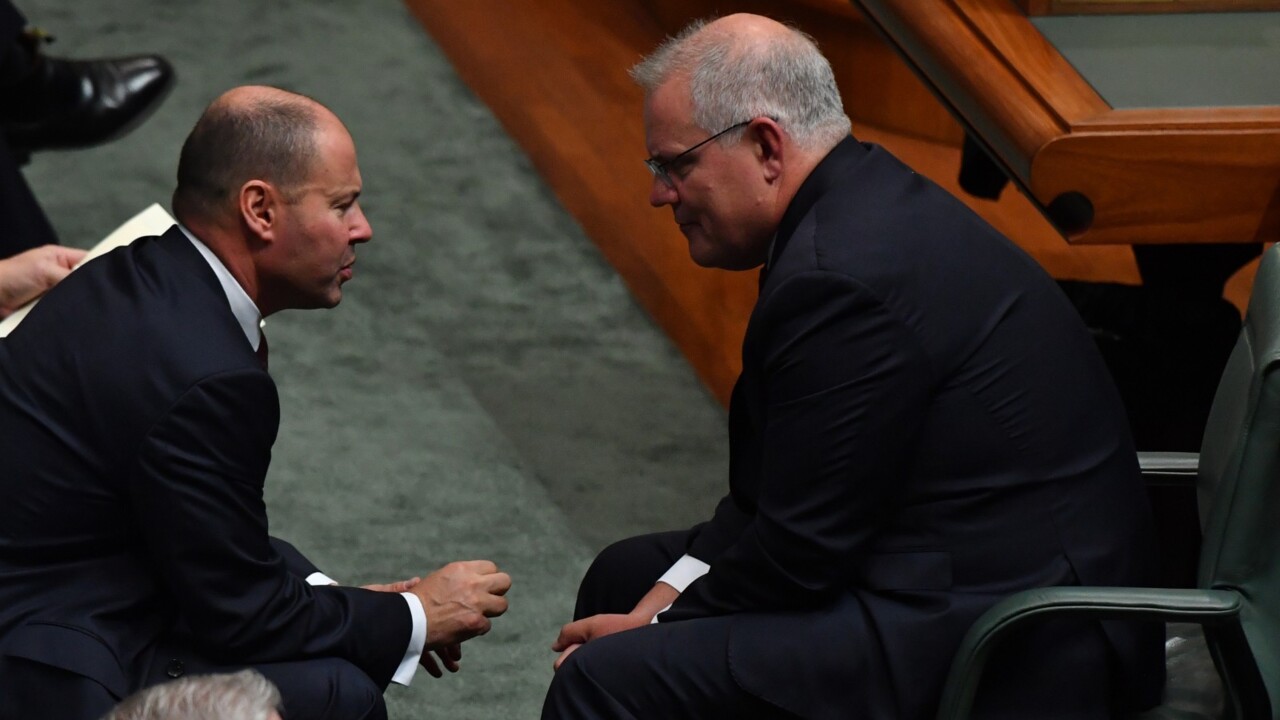
But don’t be fooled into thinking it means a shift in fiscal policy to cut spending to prioritise deficit reduction. Anybody thinking this doesn’t grasp the relentless pressures on the health budget, aged care or the government’s likely budget decision to retain tax breaks by extending the low and middle income tax offset at a cost of $8bn. The government has no intention of imposing more pain on a public that still suffers because of Covid. The budget will retain the existing strategy; high deficits will be fought by economic growth, not spending cuts on election eve. Witness how politics drove more funds for the ABC.
The government’s real target will be Labor, with Frydenberg’s message being that Labor, at most stages, has backed the path of more spending. It may seem outrageous after such a huge fiscal expansion that the government will campaign on Labor’s fiscal recklessness – but that’s exactly what it intends.
Morrison and Frydenberg know their hip-pocket vulnerability: cost-of-living pressures, with the bank’s near-term forecasts showing prices rising faster than wages. Stronger recovery means higher inflation accentuated by global petrol price pressures. Lowe has abandoned the RBA prediction that interest rates would not rise until 2024. He said he expected the increase in the official rate would come next year or maybe late this year.
The media was horrified at this; “interest rates up” – more bad news for the government. Well, no; it’s good news. It means more activity, jobs, spending, investment and travel. More “normal” interest rates are essential to restore a balanced economy.
But forget scare talk about interest rate increases in the election context. That won’t happen with Lowe making clear the official rate at 0.1 per cent, as distinct from market rates, will be stable for a long while yet. That’s because Australia today doesn’t have an inflation problem. It doesn’t have an interest rate problem. And it still has a wages problem. The bank’s goal is healthy wage rises and they are yet to materialise, another election wedge for Labor.
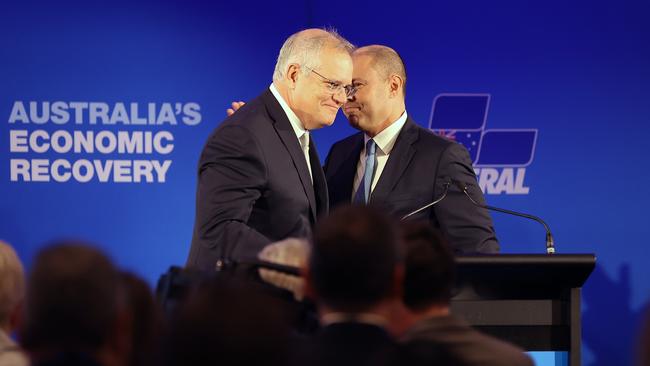
Morrison wasn’t mug enough to fall into the media’s political trap of saying sorry. His admission of blunders during the battle against Covid has been essential and a concession to the obvious though the crisis in aged care exposes the government on multiple failures. The bottom line is that the government will face certain doom if there is another virus resurgence before or during the election campaign. But if that does not occur, the economic debate might yet dominate and that is the Morrison-Frydenberg strength.
In these times expect the unexpected. Here are three markers. Low unemployment did not save the Howard government in 2007. This virus plays havoc with economic forecasts, so don’t assume the good news is assured. And remember the dearth of economic reform means after the immediate recovery the economy from next year faces more pressure on living standards from weak productivity.



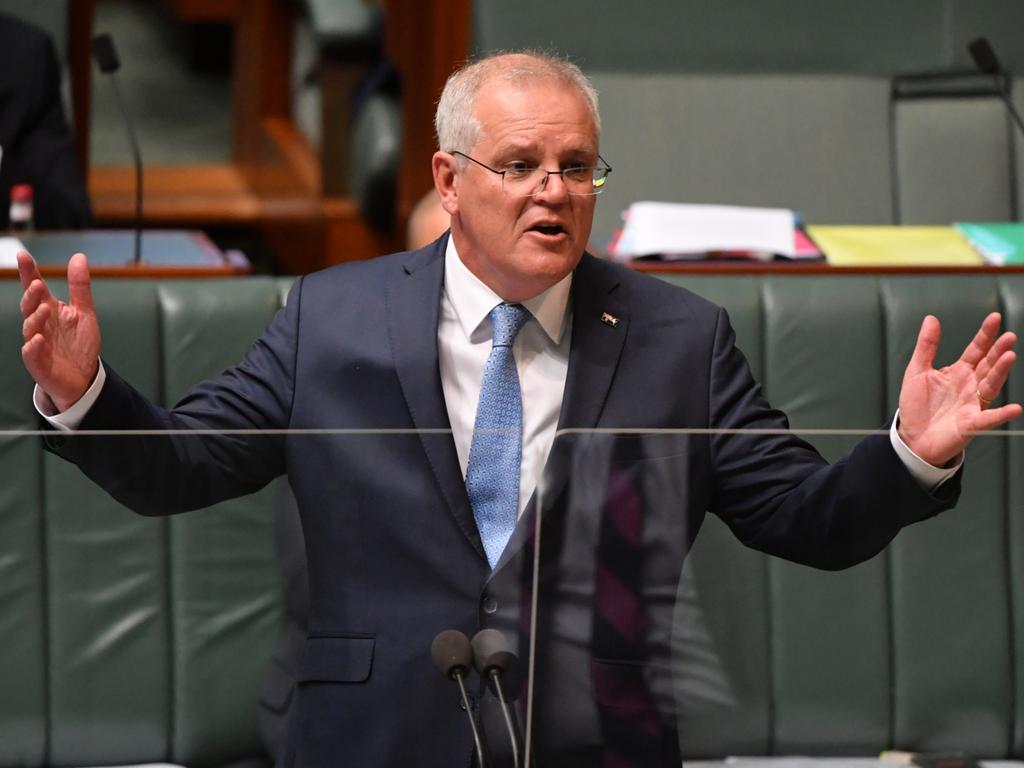
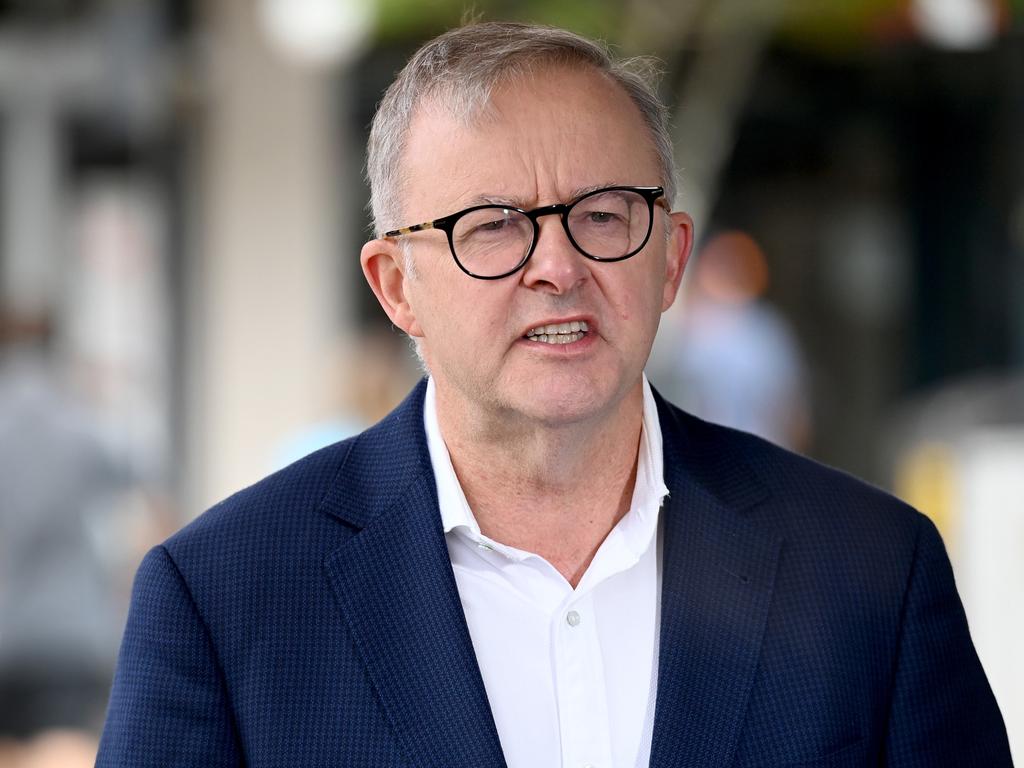
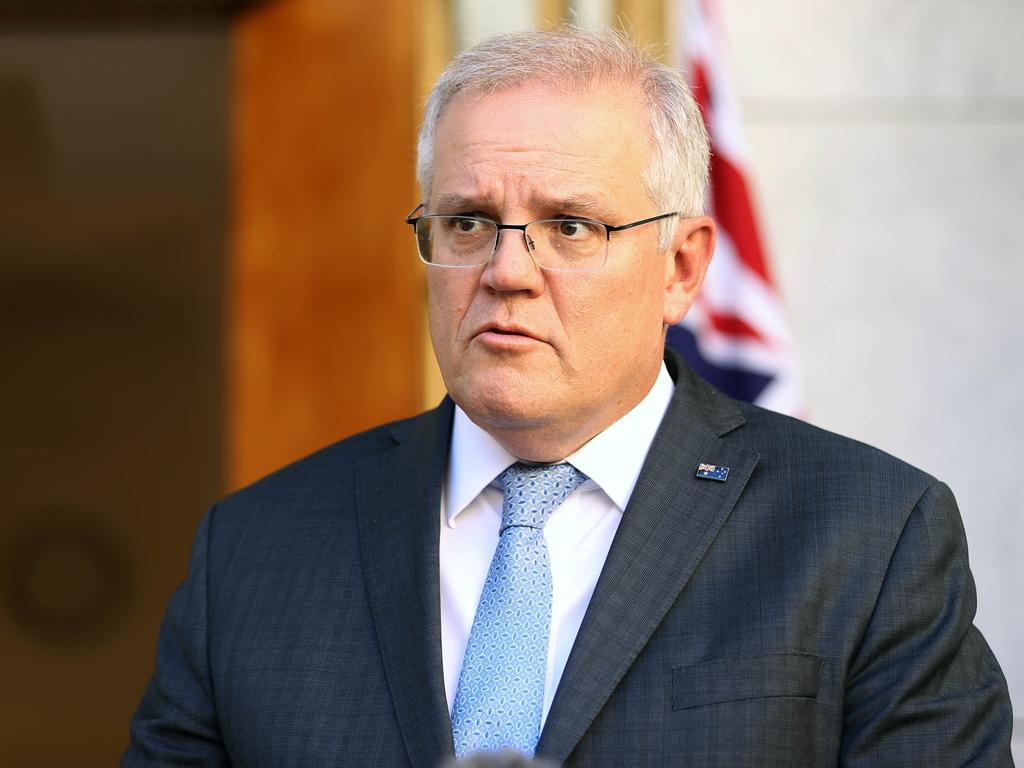
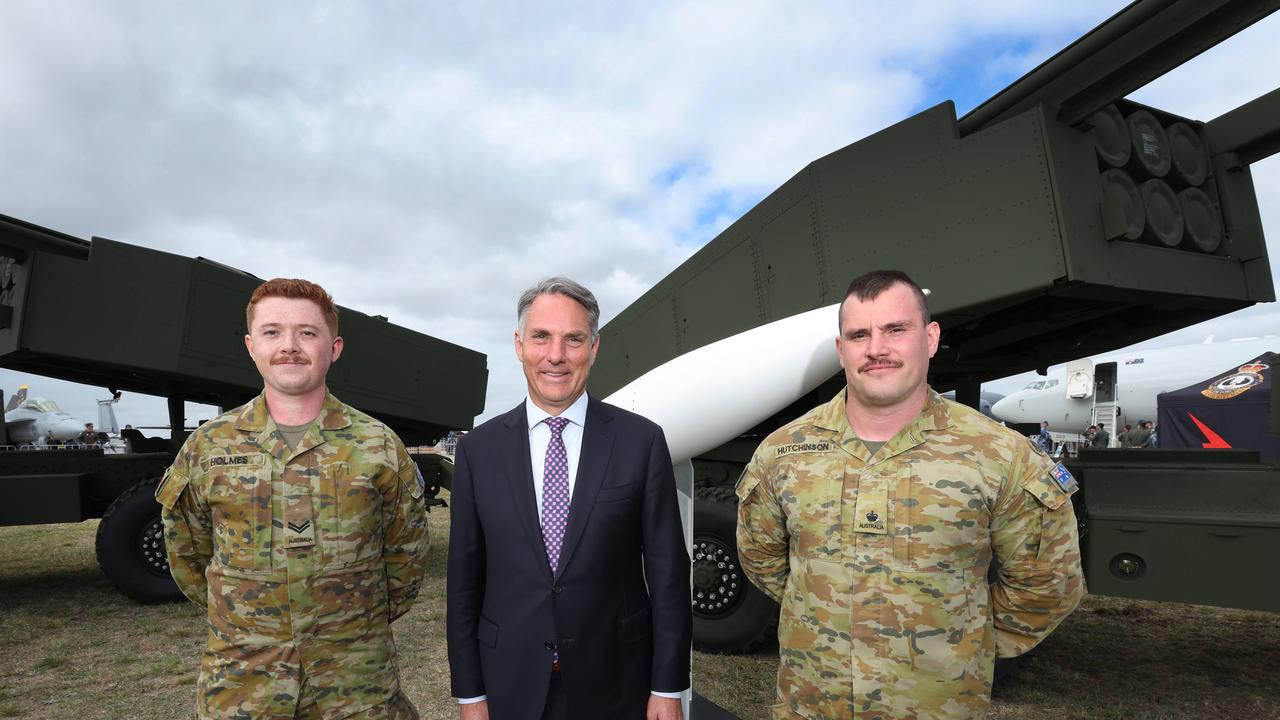
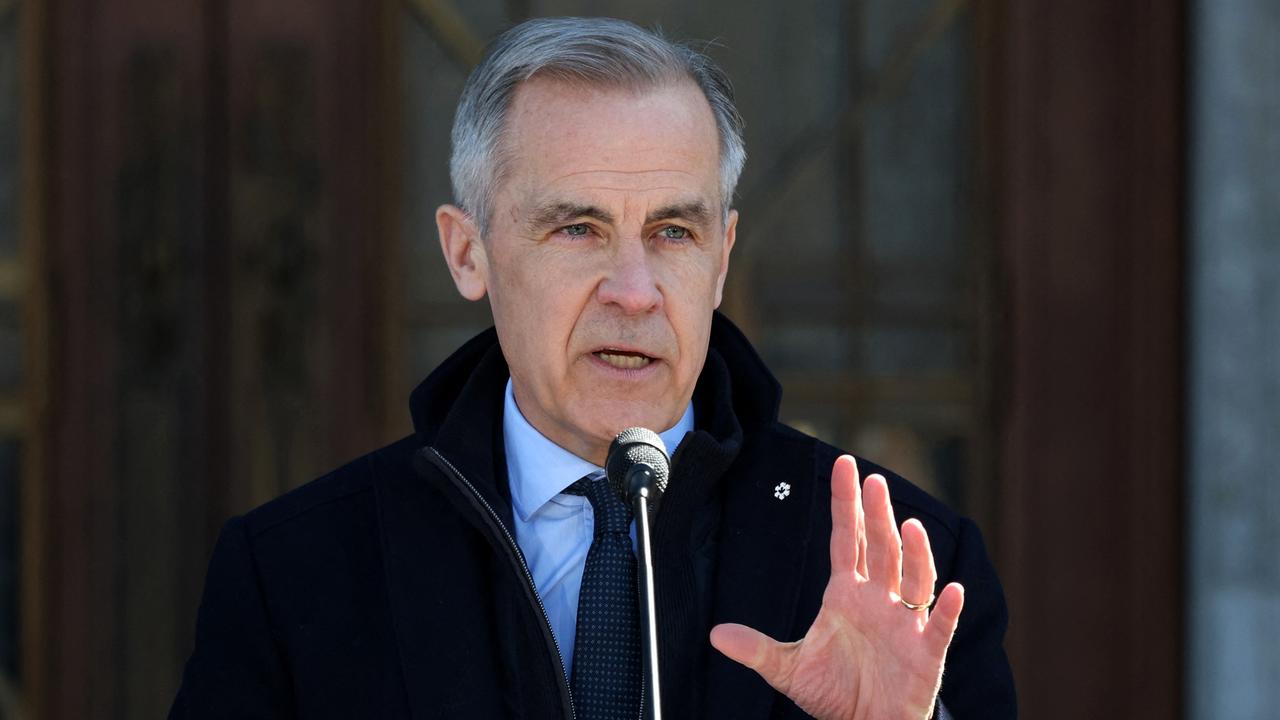
With leaked texts and lethal character assessments dominating the media, the likely central election issue is submerged – despite public anger over Omicron, the economy is heading towards a strong near-term recovery marked by surging job creation, an economic growth kickback, half-century lows in unemployment, massive household savings to spend and the reopening of the international borders.